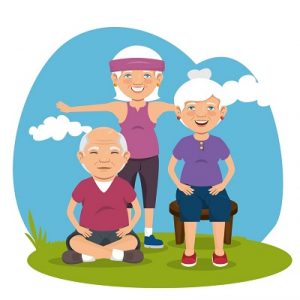 It is a well-known fact that exercise has many benefits. Some of the first benefits people tend to think of are those that are related to weight, heart health, and body image. However, these are by no means all of the benefits that regular exercise can bring you.
It is a well-known fact that exercise has many benefits. Some of the first benefits people tend to think of are those that are related to weight, heart health, and body image. However, these are by no means all of the benefits that regular exercise can bring you.
One of the biggest benefits to regular exercise is the effect that it has on your mental health. There are many emotions that exercise has been proven to help. From exhaustion and stress to hopelessness and anxiety, exercise can help you gain control of your emotions, and feel more emotionally, and mentally stable.
Exercise and Feeling Exhausted or Depressed
When you are tired or feeling depressed working out probably seems like the last thing you would want to do. Studies have shown that regular exercise can reduce fatigue and dramatically increase your energy levels. Exercise also helps you to sleep at night, which assists in feeling less exhausted. When you are able to get more sleep, it can also help with depression.
Exercise and Feeling Overwhelmed and Stressed
When you are already feeling stressed out and overwhelmed with all of life’s obligations, adding one more obligation to yourself may seem as though it is counterproductive. However, by taking time out of your schedule to make yourself a priority you will feel better since your body releases endorphins when you are physically active.
Exercise and Feeling Hopeless
When everything in your life seems hopeless, exercise becomes something you can control. By being able to take the time out and do something for yourself, you are able to see that you are in control and things aren’t as hopeless as they seem. The endorphins that are released when you exercise also boost your mood and enable you to feel more positive.
Exercise and Feeling Bad About Yourself
If you are feeling bad about yourself, setting small fitness goals, and reaching them, can help to boost your confidence and help you realize you are capable of accomplishing the things you set out to do.
Exercise and Overcoming Grief
Many of the symptoms of grief are similar to those of depression. Turning to exercise can go a long way towards helping you cope. Exercise brings a purpose of and focus on your life; it also triggers the release of endorphins, which help to control your moods.
Tips for Getting Started
Getting started with exercise can be challenging, try starting with some of the tips below:
- Make exercise a social activity to make it more enjoyable, choose people who you enjoy being around and take a yoga class or walk to the park with your kids.
- You don’t need to go to the gym. Cleaning the house, washing the car, or walking around the block are all acceptable forms of exercising.
- Make it a part of your everyday life. Choose activities that are easy to incorporate into your day-to-day life. This can mean walking to work instead of driving, taking the stairs instead of the elevator or walking over to a friend’s house instead of calling them to chat.
- Choose activities you enjoy. This can include walking around the mall window-shopping, throw a Frisbee for the dog, or go for a swim.
Taking the first step towards exercise can be incredibly difficult, especially if you are feeling any of the emotions that are listed above. Now that you know the benefits that exercising can provide, you are ready to begin to overcome the obstacles and get started with working out.
Start small, with even just a five-minute walk, and before you know it you will be feeling better emotionally and regular exercise will become second nature to you.






